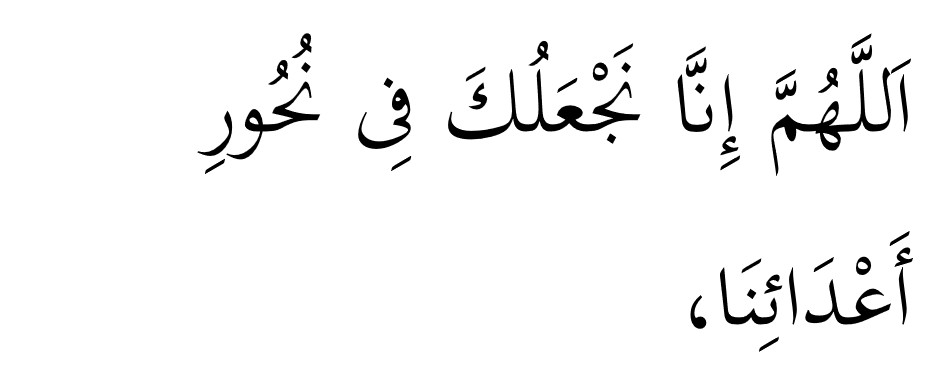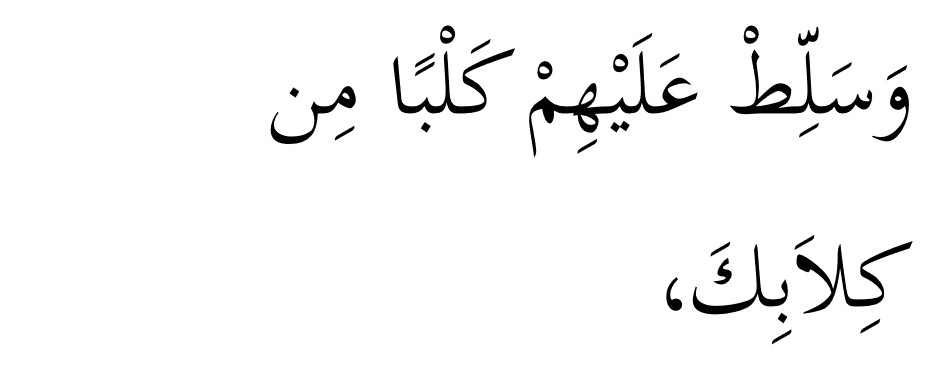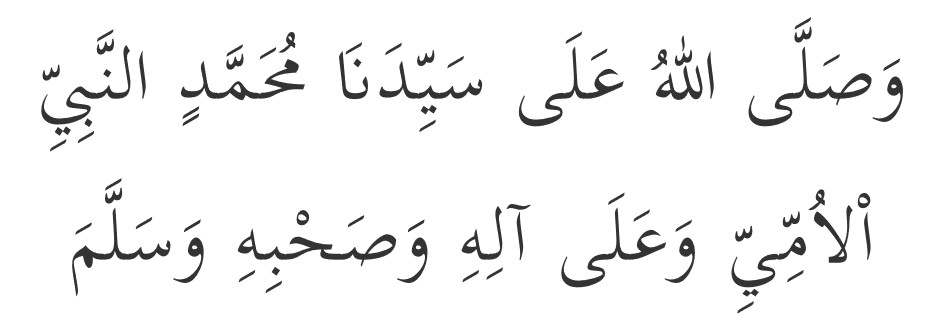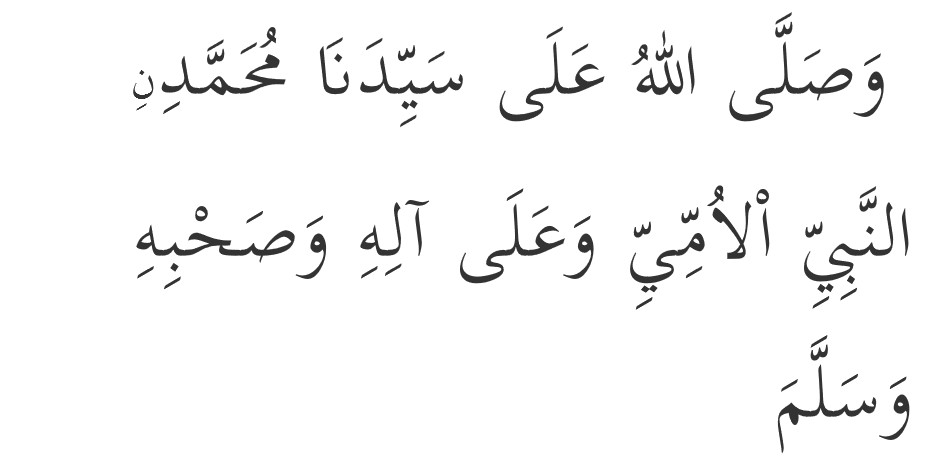
How to recite Dua Qunoot?
This is a complete guide of Dua Qunoot. You’ll be guided step-by-step until you are done.
What is the best part is:
I will provide the English transliteration in Latin along with the Arabic text. The audio is also included to help you better.
Let’s get started.
What Is Dua Qunoot?
Dua Qunoot is a special supplication which is mentioned in the hadith.
In Shafi’e school, dua qunoot usually recited in regularly in Fajr Prayer (Subh Prayer) and in Witr Prayer.
The word Qunoot (الْقُنُوْتُ) is derived from the Arabic words “Qanata” which carries multiple meanings, one of which means ‘To Stand,’ ‘Silence,’ ‘Submissive and Humble To Allah.’
There are two types of Dua Qunoot:
- The Qunoot recited during Fajr prayer and Witr prayer (during the last 10 nights of Ramadan)
- Qunoot Nazilah, which is specifically recited in times of calamity or seeking for Allah’s protection.
Dua Qunoot Text
This Qunoot recitation is when we are doing prayers individually.
In second rakats of Subh Prayer, before sujood (after bowing of ruku’), remain standing straight by raising both hands (to recite qunoot)
The recitation as belows.
(You also can play the audio of Dua Qunoot at the ends of the text)
Allāhummah-dinī fīman hadait
Wa ‘āfinī fīman ‘āfait
Wa tawallanī fīman tawallait
Wa bārik lī fīmā a’atoit
Wa qinī syarra mā qadhait
Fa-innaka taqdī wa lā yuqdho ‘alaik
Wa innahu laa yazillu man wālait
Wa lā ya’izzu man ‘ādait
Tabārakta Rabbana wa ta’ālait
Falakal-hamdu ‘alā mā qadhait
Astaghfiruka wa atūbu ilaik
Wa sallallāhu ‘alā sayyidinā Muhammadin Nabiyyil ummīyi wa ‘alā ālihi wa sahbihi ajma’īn
Please hit the play button:
Dua Qunoot Meanings
O Allah, guide me with those whom You have guided and granted me wellbeing with those whom You have granted wellbeing. Take me to Your care with those whom You have taken to Your care. Bless me in what You have given me. Protect me from the evil You have ordained.
Surely, You hold the command and are not commanded, and none whom You have committed to Your care shall be humiliated. And none whom You have taken as an enemy shall taste glory. You are blessed, Our Lord and Exalted. All I praise is upon You for what You decide.
I seek Your forgiveness, and I repent unto You. Peace and blessings are upon our Prophet Muhammad and upon his family and all his Companions. And praise is to Allah Lord of all the worlds.
Dua Qunoot For The Imam
If the prayers are doing in jama’ah (congregational prayer), the recitation of qunoot is a little bit different.
The difference is because of the change in nouns in Arabic words from singular to plural.
The imam recites the Qunoot in blue words below, and the rest of the Qunoot (in the black words) is self-recite by the followers (ma’mum).
Allāhummah-dinā fīman hadait
Wa ‘āfinā fīman ‘āfait
Wa tawallanā fīman tawallait
Wa bārik lanā fīma a’atoit
Wa qinā syarra mā qadhait
Fa-innaka taqdī wa lā yuqdho ‘alaik
Wa innahu laa yazillu man wālait
Wa lā ya’izzu man ‘ādait
Tabārakta Rabbana wa ta’ālait
Falakal-hamdu ‘Alaa Maa Qadhait
Wa Nastaghfiruka wa atūbu ilaik
Wa sallallāhu ‘alā sayyidinā Muhammadin Nabiyyil ummīyi wa ‘alā ālihi wa sahbihi ajma’īn
Please hit the play button:
Qunoot Nazilah
What is the Qunoot Nazilah?
How it differs from other Dua Qunoot?
The meaning of Nazilah in terms of Language is a calamity, worrying, and desperate situation.
In terms of terminology, it means a catastrophic situation that befalls Muslims, such as the presence of enemies, fears, droughts, epidemics of disease, or something apparent harm befell Muslims.
So, Qunoot Nazilah is held because disasters happen, such as natural disasters or wars.
Qunoot Nazilah is the dua that is recited after the ruku’ in the last rakats of salah.
Implementation of Qunoot Nazilah
Qunoot Nazilah can be recited at every obligatory prayer: Zuhr, Asr, Maghrib, Isya’ and Subh.
It will be recited in the last rakats after waking up from Rukuk for iktidal.
There are three ways to recite the dua, which we can choose one of the following ways:
- Recite the Dua Qunoot, such as during the Subuh prayer.
- Recite the dua of Qunoot Nazilah only
- Read the Subh Qunoot and followed by the Qunoot Nazilah
Head up!
If you do not memorize Qunoot Nazilah, you can recite the qunoot dua as in the Subh prayer. Then the Nazilah can be recited after the prayer.
If in a congregation, the imam should tell the jama’ah that the qunoot will be recited in the prayer so that they can recite it together.
The Text Of Qunoot Nazilah
According to the majority of scholars’ opinion, there is no specific dua that needs to be recited in the prayer of Qunoot Nazilah.
Therefore, the dua that is recited is what corresponds to the tragedy that happened at that time.
- For example, in the event of a natural disaster, we can pray specifically for God’s protection.
- In the event of wars like in Palestine and Syria, we pray for our brothers there.
However, there is a text of Dua Qunoot Nazilah that is commonly taught to us:

ALLâhumma ‘Innâ Naj-‘Aluka Fi Nuĥuri ‘A‘-Dâ ‘Innâ‚

Wa Na-‘Użu-Bika Min Syuru-Rihim,

ALLâhumma Baddid Syam-Lahum

Wa Farriq Jam-‘Ahum‚

Wa Syattit Kalimata-Hum,

Wa Zal-Zil ‘Aqdâ-Mahum,

Wa Salliţ ‘Alayhim Kalbân Min Kilâbik‚

Yâ Qahhâr‚ Ya Jabbâr‚ Yâ Muntaqimu

Yâ ALLâhu‚ Yâ ALLâhu‚ Yâ ALLâh‚

ALLâhumma Yâ Mun-Zilal-Kitâb‚

Yâ Mujriyas-Saĥâb‚

Yâ Hazimal Aĥzâb

Ihzim-Hum. Wan-Şurnâ ‘Alayhim
The meanings:
O Allah, we put you on the necks of our enemies, And we seek refuge with You from their evil. O Allah destroys their group. O Allah breaks their alliance, O Allah melts their stands. O Allah destroy their steps, Grab Your dogs to them. O Allah the Almighty. O Allah the Mighty. O Allah the Most Revenge. O Allah, O Allah, O Allah. Who sent down the Book, Who moved clouds, Who defeated the army of Ahzab. Defeat them, Defeat them, Defeat them. And win over us.
The Scholars Opinions about Qunoot
There are various opinions among the Islamic scholars (ulama’) about practicing qunoot in the prayers.
al-Imam Asy-Shafi’e believes that the recitation of dua qunoot in prayer is sunnah muakkadah, which means recommended to practice.
If you forgot to do so, it could be replaced by sujood sahwi
However, this is not mandatory. The Subh Prayer is accepted with or without Qunoot or Sahwi.
This view of the Shafi’e School is held firmly by the Muslim community, especially in Southeast Asia, including Malaysia, Brunei, Singapore, and Indonesia.
Conclusions
Hopefully, this guide helps you.
If you have any thoughts or questions, you can drop them in the comment section below.



















